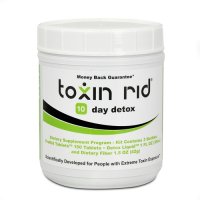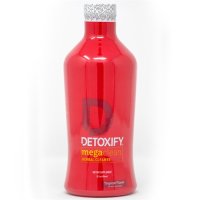How to Detox THC from Your Body
Although the consumption of cannabis for both medical and recreational purposes is rapidly gaining worldwide acceptance among the populace, the laws in most countries still prohibit its use and thus, most insurance companies use a person’s consumption of cannabis as a means to justify their denial of benefits. Consequently, the vast majority of employers subject both potential and current employees to periodic drug test designed to detect the presence of THC metabolites. Therefore, THC detoxification is an often discussed topic among avid cannabis users but, it is also a topic fraught with numerous misconceptions and myths.
What is Detoxification?
The process of detoxification is defined as abstinence from consuming a substance for the purpose of cleansing the body and ridding it of toxins. Thus, for cannabis users, the goal would be to rid the body of accumulated cannabis metabolites by abstaining from consuming cannabis. However, people who frequently use cannabis and, especially particularly potent cannabis, may find the process of detoxification somewhat unpleasant due to the side-effects that it can induce. For instance, heavy cannabis users may experience irritability, anxiety, headaches, decreased appetite, insomnia, and even depression when suddenly ceasing to consume cannabis.
However, there is considerable debate over whether or not cannabis is actually an addictive substance and thus, there is also debate as to whether or not these symptoms should be classified as withdrawal symptoms.
Why a Person Might Want to Detox
Although the laws that regulate the use of cannabis for both medical and recreational use are rapidly changing as public opinion evolves, the majority of countries around the world still prohibit its use. Consequently, the majority of the world’s companies and corporations require all new employees to submit to a drug test before being hired. In turn, this policy often forces people who consume cannabis to flush the metabolites that consuming THC creates from their bodies in order to be considered a potential employee. On the other hand, even avid cannabis consumers sometimes feel the need to take a “tolerance break” every now and then as well as a need to flush the accumulated metabolites from their system.
THC versus THC-COOH
However, it is important to understand that although THC is the psychoactive cannabinoid contained in cannabis which is responsible for the euphoric effect many cannabis users experiences, most drug screens do not test for the presence of THC. Instead, the majority of drug tests are designed to detect the presence of a metabolite called THC-COOH.
Thus, it is helpful to understand that in order for THC to become psychoactive, it must first undergo decarboxylation (heating) in order to convert the THC molecule to a slightly different molecule called THCa which is most often accomplished by smoking the dried flowers or by infusing cannabis edibles with extracts that contain THC. Then, once the THC is converted to THCa, it is distributed throughout a person’s body via their bloodstream where it then enters their liver where it is metabolized within two hours to produce a metabolite called THC-COOH.
Therefore, because most drug tests are designed to look for THC-COOH rather than THC, it is helpful to know that the average half-life of THC-COOH is about three weeks to one month in an infrequent user.
How Does the Human Body Store THC-COOH?
Next, it is important to understand how the human body stores THC-COOH. Thus, you should be aware that the human body is naturally designed to store energy in the form of fat cells (aka Lipids) which it then burns as an emergency source of energy. Therefore, because THC-COOH is a “fat-soluble” metabolite, it is absorbed by, and stored in, a person’s fat cells (aka Lipids). Consequently, the more body fat a cannabis consumer has, the more THC-COOH their body can absorb and store and thus, the longer it takes to naturally flush THC-COOH from their body.
How Long Does THC-COOH Stay in Your System?
However, the amount of body fat a cannabis consumer has is not the only determining factor. Instead, in addition to body fat, the length of time that THC-COOH is detectable in a person’s body is also dependant on a person’s frequency of use which determines the amount of THC-COOH stored, as well as their metabolic rate which determines how fast a person’s body burns their lipids.
But, it is also important to keep in mind that because THC is metabolized by a person’s liver which takes approximately 2 hours to convert THC to THC-COOH, saliva tests can detect a person’s cannabis use as quickly as 2 hours and for as long as 12 hours. Therefore, most drug tests are instead designed to test a person’s urine for the presence of THC-COOH. Consequently, a one-time cannabis user can test positive for a length of time ranging from 1 to 6 days while a moderate user can test positive for as long as 7 to 13 days. Furthermore, a frequent cannabis user can test positive for as long as 15 days while a heavy cannabis user may test positive for as long as 30 days. However, because each person’s metabolism is different, it should be noted that some heavy cannabis users have reported testing positive for as long as 45 to 90 days depending on the type of test conducted.
Consequently, the length of time during which a person’s body may retain THC-COOH metabolites is entirely dependent on their mass, the amount of body fat they have, their frequency of use and, the quantity of cannabis they consume and, its potency.
The Different Types of Drug Tests
In fact, because there are several different factors that determine how long THC and its metabolite THC-COOH are retained by a person’s body, it is also important to be aware of the fact that there are, at present, four different types of drug tests designed to detect the presence of THC and THC-COOH and that each type can detect the presence of THC metabolites for different periods of time.
Urinalysis
The most common type of drug test is the dreaded “pee test” in which a sample of a person’s urine is collected and then tested for various types of drugs such as THC, cocaine, amphetamines, opiates, and phencyclidine because of the metabolite. Thus, any cannabis user who is subject to a urine test should be aware that THC-COOH can be detected in a person’s urine for up to thirty days and possibly even longer depending on the various factors mentioned above.
Blood test
However, while urinalysis is the most common form of testing whether or not an individual is a cannabis consumer, it is not the only means. For instance, a person’s blood can also be collected and analyzed to determine whether or not it contains either THC or THC-COOH and thus, it’s a reasonably accurate indication of whether or not a person has consumed cannabis within a fairly recent period of time. However, the good news for cannabis consumers is that because THC is metabolized by the liver within two hours where it is converted to THC-COOH, it can take as little as 2 to 7 days for a person’s blood to no longer test positive for THC metabolites.
Saliva test
In addition to blood tests, saliva tests are also sometimes used to determine whether or not a person has recently consumed cannabis and a person’s saliva is usually collected via the use of a cheek swab. Thus, any cannabis consumer who is likely to be subjected to a saliva test should be aware that THC can be detected in a person’s saliva as soon as 2 hours after consumption and for up to 24 hours after consumption in those who only use cannabis occasionally. However, for those who use cannabis frequently, THC can be detected in a person’s saliva for up to 34 hours.
Hair Follicle Analysis
Although a hair follicle test is the least common type of drug test, a hair follicle test is specifically designed to test for the presence of THC over a period of 90 days. Thus, when subjected to a hair follicle test, a lab technician will collect hair samples from very close to a person’s scalp. But, if a person has recently shaved their head, the lab technician can then collect hair samples from another part of a person’s body in order to complete a hair follicle test.
Breathalyzer test
Unlike alcohol which is measured in a person’s bloodstream in parts per million, cannabis metabolites are so small that they must instead be measured in parts per trillion. Thus, it is very difficult to accurately detect or measure the presence of THC using a machine such as a breathalyzer. Consequently, there is only one company at present that claims to have developed a THC breathalyzer that can successfully detect and measure the presence of THC with a reasonable degree of accuracy.
Therefore, cannabis consumers should be aware that although THC breathalyzers are not presently in common use, there is a high demand among police departments for just such a machine for use during traffic stops and that such a machine would most likely be used to detect the consumption of cannabis within the last two hours.
How do Urine Tests Work?
Due to the fact that different types of drug tests are designed to detect different compounds when performing a drug test, a laboratory technician will request that the subject submit a urine, blood, hair or, saliva sample for testing which will then be examined for the presence of THC and/or THC-COOH.
However, as mentioned above, the most common type of drug test is the urinalysis or, “pee test” and thus, when performing a urinalysis, lab technicians specifically look for the presence of the metabolite THC-COOH and thus, their first step will be to check to see if a person’s urine contains more than 50 nanograms per milliliter THC-COOH. In addition, due to the fact that many people attempt to cheat on their drug test by flushing their system with fluids or, by using fake urine, lab technicians will also check the temperature of a subject’s urine as well as its color, its pH level, its specific gravity (aka density) and, its creatinine levels to make certain that the sample is uncontaminated.
Thus, attempting to dilute one’s urine by drinking large quantities of fluids prior to a drug test or, by altering its pH by drinking adulterants such as vinegar will simply result in a tainted sample which will then be rejected by the lab.
How to safely detoxify your system
Consequently, because THC is metabolized by the liver where it is converted to THC-COOH and is then stored in a person’s fat cells, any successful detoxification method must address this issue. Consequently, THC detox methods can be divided into two separate categories which consist of natural methods such as exercise and flushing with liquids and, artificial methods such as detox drinks and detox kits. So, let’s first examine the natural methods for flushing THC-COOH from a person’s body.
Due to the fact that THC metabolites are stored in a person’s fat cells, the best method for removing THC metabolites from your system is abstinence. In fact, ceasing to consume cannabis for an extended period of time is quite possibly the best method of cleansing THC metabolites from your body since it allows your body to expunge THC metabolites naturally. However, using this method to detox from THC is also the slowest method since it can take as long as 90 days for a person’s body to fully expunge all of the THC metabolites although, most people are able to pass a simple urine test after a 30 period of abstinence.
However, because THC metabolites are stored in a person’s fat cells, the more body fat a person has, the longer it will take to expunge the metabolites via abstinence. Thus, adding an exercise regimen to period abstinence will shorten the time needed to expunge any THC metabolites from a person’s body because, by burning the energy stored in fat cells, you also release any THC metabolites stored in those fat cells. Thus, for those who require a faster method of natural THC detoxification than merely abstaining for 30 days or more, exercise may very well be the best solution.
Last, it should be noted that while such methods as drinking large quantities of water and/or sweating in a sauna are often touted as effective methods of expunging THC metabolites from a person’s body, the fact is that because THC metabolites are stored in a person’s fat cells, these methods simply do not provide a viable means THC detox.
Furthermore, a simple search of the Web these days will reveal an overabundance of companies who sell products such as detox drinks and detox kits which are purported to expunge THC metabolites from a person’s body. In fact, there are many different brands of detox drinks on the market today which are full of detox-friendly ingredients such as lemon juice, watermelon juice, and mint which may very well be helpful in flushing THC metabolites from a person’s body but, consumers should be aware that unless the ingredients of such detox drinks specifically address the issue of flushing THC metabolites from a person’s fat cells, then they are not likely to be very effective.
Of course, the same can be said of so-called detox kits which often include ingredients such as herbal capsules. For instance, one such detox kit called the Bio Cleanse Detox kit consists of 90 herbal vegan capsules containing their proprietary “Digest Power” formula to stimulate the bowels and organs, 300 grams of “Toxin Remover” powder to absorb the released toxins and carry them away safely and, also 30 veggie caps of vegan probiotics.”
So, in conclusion, the simple fact is that because THC is metabolized by a person’s liver where it is converted to THC-COOH and then stored in a person’s fat cells, abstinence is the only certain method of THC detoxification and, the more body fat a person has, the longer this method of detoxification will take. Therefore, if passing a drug test is your main reason for THC detoxification, then you should plan accordingly by abstaining for at least 30 days. However, combining a daily exercise regimen designed to burn off excess body fat with a period of abstinence will lessen the time needed to naturally expunge THC metabolites from your body.
On the other hand, if you choose to employ one of the many THC detox drinks or THC detox kits available on the market today, then you should note and then research the various ingredients contained in such drinks or kits to make absolutely certain that they address the issue of flushing THC metabolites from fat cells because if not, then they will likely provide you with little advantage.





